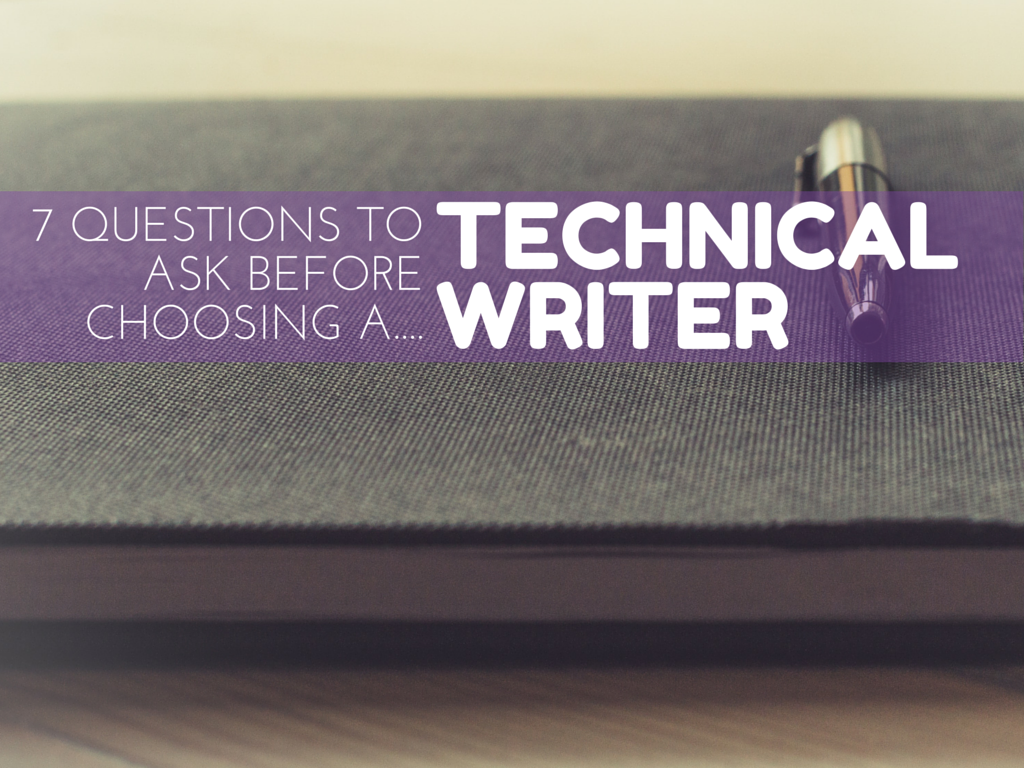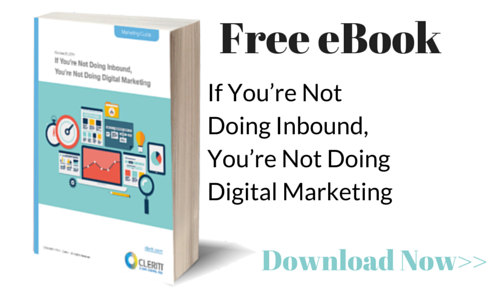- Jul 3, 2015
- By Emily Inman
- In Content Marketing
7 Questions to Ask Before Choosing a Technical Writer


When you start down the path of inbound marketing, you soon realize that the quality of your leads is directly related to the quality of your content. If you want to feed your sales team a steady stream of high quality leads, you need a writer who can produce work that is both interesting and informative.
If you’re struggling to up your content marketing game, consider the following 7 questions to guide you toward the right writer — whether you're delegating to an in-house staffer or auditioning a freelancer.
1. What Level of Expertise Do We Need?
You may need writers with varying levels of technical expertise, depending on the type of content you want a particular writer to produce.
If you’re only planning to create articles that paint topics in broad strokes, a writer with passing familiarity with your industry may do. If, however, you want to publish detailed analytical reviews or how-tos on intricately technical processes, you need a writer who is intimately familiar with the ins and outs of your industry.
Keep in mind the fact that the downloadable content behind your CTAs — eBooks, whitepapers, analyst reports, comprehensive guides — are, by necessity, more technical pieces. If you’re outsourcing website, blog, and downloadable content, you need a writer with considerable technical expertise.
2. Can We Keep This In-House?
There are two factors that determine your ability to keep content creation in-house.
1. The Technical Skill of Your Staff
I’m not talking about industry experience here, but expertise as a writer.
While all publicity, as the saying goes, may be good publicity, the same does not hold true for writing. The average reader isn’t going to stick around long enough to plod through a rambling article that’s hard to follow or fails to make a clear point.
2. Your Budget
If you don’t have employees on staff who are skilled writers, you are going to have to hire someone or outsource. Depending on the volume of content and level of technical knowledge you’re looking for, contracting work out to a freelancer can be more cost effective in the long run.
3. How Did You Get Your Familiarity With The Industry?
This first question you’ll ask applicants won’t just show how experienced a writer is in your field of work — it may also reveal a conflict of interest.
While you do want to make sure that any writer you hire does have the necessary skills to talk about your industry, you must be very careful about who you choose for your project. Writing can be a secondary career for some freelancers — especially those writers that you find on third party writing services who have knowledge of a certain industry.
You may find that the writer you're interviewing has a day job working for the competition.
4. What Kind of Writing Have You Done In The Field?
Once you’ve determined that a writer is not, in fact, a moonlighting competitor, you need to start to get an understanding of their technical expertise. Knowing what kinds of content a writer has produced — blogs, articles, product manuals — can give you at least a general idea of their overall writing experience and familiarity with the technical side of your business.
5. Have You Been Published Before?
Even if you can't track down specific articles, knowing whether or not a writer has been published — and by whom — will still help you understand what kind of standards a writer has written to in the past. Guest-writing on a friend’s personal or professional blog is something altogether different than being published in the digital edition of an industry magazine.
Most respected publications will share a copy of their submission guidelines on their website so you can see for yourself the rigorousness of the quality standards a writer must meet in order to be published.
6. Where Can I Find Samples of Your Writing?
Any writer worth their salt will have a portfolio of writing samples waiting in the wings.
Some writers — like our Inbound Marketing Manager Aly Schweigert (Hi, Aly!) — will direct you to a website that they regularly update with new content. Others may share samples that have been republished on a platform like LinkedIn. Even hard copies of articles from print publications where they are credited with a byline would do.
If they can’t share at least a couple examples, you may need to develop your own writing test or move on to the next candidate. You don’t want to commit to a writer without seeing for yourself what they can do.
7. How Long Have You Been Writing In The Field?
Though this may be one of the first questions you ask, it may turn out to be more of a formality, depending on how well you like a writer.
If a writer has experience in your field, has already written content specific to your industry and you’re impressed by the quality of their samples, then how long they’ve been in the industry is just icing. You want a good writer with knowledge of your industry — the rest is just numbers.





